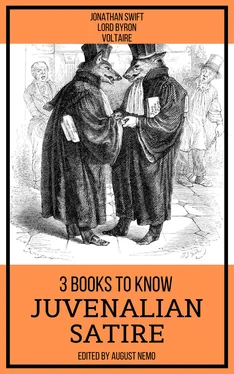His only shrine of feelings undefiled.
He was a man of a strange temperament,
Of mild demeanour though of savage mood,
Moderate in all his habits, and content
With temperance in pleasure, as in food,
Quick to perceive, and strong to bear, and meant
For something better, if not wholly good;
His country's wrongs and his despair to save her
Had stung him from a slave to an enslaver.
The love of power, and rapid gain of gold,
The hardness by long habitude produced,
The dangerous life in which he had grown old,
The mercy he had granted oft abused,
The sights he was accustom'd to behold,
The wild seas, and wild men with whom he cruised,
Had cost his enemies a long repentance,
And made him a good friend, but bad acquaintance.
But something of the spirit of old Greece
Flash'd o'er his soul a few heroic rays,
Such as lit onward to the Golden Fleece
His predecessors in the Colchian days;
T is true he had no ardent love for peace—
Alas! his country show'd no path to praise:
Hate to the world and war with every nation
He waged, in vengeance of her degradation.
Still o'er his mind the influence of the clime
Shed its Ionian elegance, which show'd
Its power unconsciously full many a time,—
A taste seen in the choice of his abode,
A love of music and of scenes sublime,
A pleasure in the gentle stream that flow'd
Past him in crystal, and a joy in flowers,
Bedew'd his spirit in his calmer hours.
But whatsoe'er he had of love reposed
On that beloved daughter; she had been
The only thing which kept his heart unclosed
Amidst the savage deeds he had done and seen;
A lonely pure affection unopposed:
There wanted but the loss of this to wean
His feelings from all milk of human kindness,
And turn him like the Cyclops mad with blindness.
The cubless tigress in her jungle raging
Is dreadful to the shepherd and the flock;
The ocean when its yeasty war is waging
Is awful to the vessel near the rock;
But violent things will sooner bear assuaging,
Their fury being spent by its own shock,
Than the stern, single, deep, and wordless ire
Of a strong human heart, and in a sire.
It is a hard although a common case
To find our children running restive—they
In whom our brightest days we would retrace,
Our little selves re-form'd in finer clay,
Just as old age is creeping on apace,
And clouds come o'er the sunset of our day,
They kindly leave us, though not quite alone,
But in good company—the gout or stone.
Yet a fine family is a fine thing
(Provided they don't come in after dinner);
'T is beautiful to see a matron bring
Her children up (if nursing them don't thin her);
Like cherubs round an altar-piece they cling
To the fire-side (a sight to touch a sinner).
A lady with her daughters or her nieces
Shines like a guinea and seven-shilling pieces.
Old Lambro pass'd unseen a private gate,
And stood within his hall at eventide;
Meantime the lady and her lover sate
At wassail in their beauty and their pride:
An ivory inlaid table spread with state
Before them, and fair slaves on every side;
Gems, gold, and silver, form'd the service mostly,
Mother of pearl and coral the less costly.
The dinner made about a hundred dishes;
Lamb and pistachio nuts—in short, all meats,
And saffron soups, and sweetbreads; and the fishes
Were of the finest that e'er flounced in nets,
Drest to a Sybarite's most pamper'd wishes;
The beverage was various sherbets
Of raisin, orange, and pomegranate juice,
Squeezed through the rind, which makes it best for use.
These were ranged round, each in its crystal ewer,
And fruits, and date-bread loaves closed the repast,
And Mocha's berry, from Arabia pure,
In small fine China cups, came in at last;
Gold cups of filigree made to secure
The hand from burning underneath them placed,
Cloves, cinnamon, and saffron too were boil'd
Up with the coffee, which (I think) they spoil'd.
The hangings of the room were tapestry, made
Of velvet panels, each of different hue,
And thick with damask flowers of silk inlaid;
And round them ran a yellow border too;
The upper border, richly wrought, display'd,
Embroider'd delicately o'er with blue,
Soft Persian sentences, in lilac letters,
From poets, or the moralists their betters.
These Oriental writings on the wall,
Quite common in those countries, are a kind
Of monitors adapted to recall,
Like skulls at Memphian banquets, to the mind
The words which shook Belshazzar in his hall,
And took his kingdom from him: You will find,
Though sages may pour out their wisdom's treasure,
There is no sterner moralist than Pleasure.
A beauty at the season's close grown hectic,
A genius who has drunk himself to death,
A rake turn'd methodistic, or Eclectic
(For that 's the name they like to pray beneath)—
But most, an alderman struck apoplectic,
Are things that really take away the breath,—
And show that late hours, wine, and love are able
To do not much less damage than the table.
Haidee and Juan carpeted their feet
On crimson satin, border'd with pale blue;
Their sofa occupied three parts complete
Of the apartment—and appear'd quite new;
The velvet cushions (for a throne more meet)
Were scarlet, from whose glowing centre grew
A sun emboss'd in gold, whose rays of tissue,
Meridian-like, were seen all light to issue.
Crystal and marble, plate and porcelain,
Had done their work of splendour; Indian mats
And Persian carpets, which the heart bled to stain,
Over the floors were spread; gazelles and cats,
And dwarfs and blacks, and such like things, that gain
Their bread as ministers and favourites (that 's
To say, by degradation) mingled there
As plentiful as in a court, or fair.
There was no want of lofty mirrors, and
The tables, most of ebony inlaid
With mother of pearl or ivory, stood at hand,
Or were of tortoise-shell or rare woods made,
Fretted with gold or silver:—by command,
The greater part of these were ready spread
With viands and sherbets in ice—and wine—
Kept for all comers at all hours to dine.
Of all the dresses I select Haidee's:
She wore two jelicks—one was of pale yellow;
Of azure, pink, and white was her chemise—
'Neath which her breast heaved like a little billow;
With buttons form'd of pearls as large as peas,
All gold and crimson shone her jelick's fellow,
And the striped white gauze baracan that bound her,
Like fleecy clouds about the moon, flow'd round her.
One large gold bracelet clasp'd each lovely arm,
Lockless—so pliable from the pure gold
That the hand stretch'd and shut it without harm,
The limb which it adorn'd its only mould;
So beautiful—its very shape would charm;
And, clinging as if loath to lose its hold,
The purest ore enclosed the whitest skin
That e'er by precious metal was held in.
Around, as princess of her father's land,
A like gold bar above her instep roll'd
Announced her rank; twelve rings were on her hand;
Her hair was starr'd with gems; her veil's fine fold
Below her breast was fasten'd with a band
Of lavish pearls, whose worth could scarce be told;
Her orange silk full Turkish trousers furl'd
About the prettiest ankle in the world.
Her hair's long auburn waves down to her heel
Читать дальше












